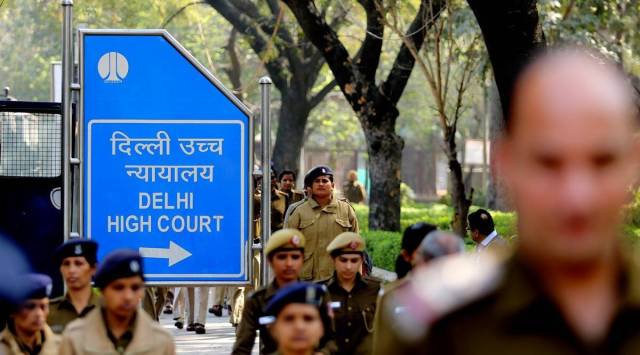Stay updated with the latest - Click here to follow us on Instagram
Barring married individuals from applying for JAG in Army reasonable: Centre to HC
The submission was made in an additional affidavit submitted by the Centre in a PIL seeking direction to the government to permit all eligible candidates to apply for jobs in Judge Advocate General (JAG) Department of the Army "irrespective of their marital status".
 The plea challenges an advertisement issued by the Army “inviting applications from law graduates, unmarried male and female".
The plea challenges an advertisement issued by the Army “inviting applications from law graduates, unmarried male and female". The Centre Wednesday told the Delhi High Court that the policy barring married individuals from applying for Judge Advocate General (JAG), the legal officer in the Indian Army, is a “reasonable restriction placed in public interest and the interest of national security”.
The submission was made in an additional affidavit submitted by the Centre in a PIL seeking direction to the government to permit all eligible candidates to apply for jobs in Judge Advocate General (JAG) Department of the Army “irrespective of their marital status”.
The plea challenges an advertisement issued by the Army “inviting applications from law graduates, unmarried male and female”.
A division bench of Chief Justice Satish Chandra Sharma and Justice Sachin Datta Wednesday granted time to litigant Kush Kalra to file his response to the Centre’s stand.
The additional affidavit states that condition of being unmarried for grant of commission to cadets aged 21-27 years is “restricted only for the period of recruitment and pre-commissioned training” involving a high amount of stress and rigours of military training and the restriction on marriage before successful commission is in the interest of the candidates as well as organisation.
It states that once the unmarried male and female cadets complete their training and are granted commission, “there is no bar on marriage or its natural consequences like pregnancy” and several service benefits like maternity leave, child care leave are also given. However, during the basic military training, that lasts for a minimum one year, such provisions are not possible, the Centre said.
“Since pregnancy and giving birth to a child is considered as natural right for a woman and she cannot be deprived of that, while formulating the rules such precautionary conditions have been laid down in the interest of women candidates themselves,” the affidavit states, adding that the Army treats males and females equally and the unmarried clause is common in all types of entry into the Army.
With respect to male officers, the “rigour of training and initial years of service” do not permit an officer to get married during training or to address certain requirements of married life to include situations of emergency, the affidavit states.
It has also been stated that an absence of more than three weeks during training leads to the cadets losing a term and being relegated to a junior term and further absence leads to discharge.
“Having regard to the effects of marriage, the bar on marriage is a reasonable restriction placed in public interest and national security…due to such thought of policy governing the entry of males and females in Indian Army, either men or women officers, do not require them to resign or give up their service due to marriage or marriage related natural consequences if they get married after completion of training and are granted commission,” the affidavit said.
The matter would be heard next on July 17.







